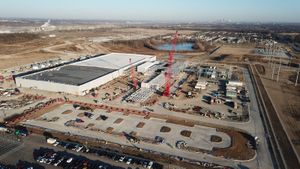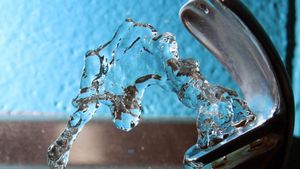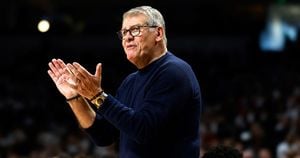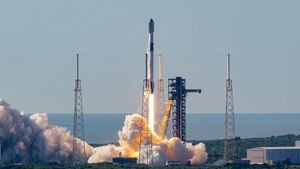Jimmy Lai, the pro-democracy media tycoon and founder of the now-defunct Apple Daily, recently testified during his high-profile trial, which is widely perceived as politically motivated. The proceedings highlight the tense atmosphere surrounding freedom of expression and the rule of law in Hong Kong.
Lai has been at the center of controversy since his arrest amid Hong Kong's crackdown on dissent following the significant protests of 2019. These protests were sparked by fears of encroaching Chinese control, leading to massive demonstrations calling for democratic freedoms. During his testimony, Lai denied charges of collusion with foreign forces, which include accusations of soliciting help from former U.S. officials like then-Vice President Mike Pence and Secretary of State Mike Pompeo during the protests.
"I did not ask them to take any action against Hong Kong or China," Lai asserted, emphasizing his commitment to peaceful democratic advocacy rather than political manipulation. His statements have drawn attention to the broader issue of press freedom and the limits placed on it by the stringent national security laws imposed by Beijing.
Now facing three major charges under this controversial law, Lai could potentially receive life imprisonment if convicted. He has been detained for over 1,400 days and is already serving sentences for separate fraud cases involving Apple Daily. His defense makes it clear: the trial is not just about Lai but symbolizes the struggle for freedom of speech within Hong Kong.
Sebastien Lai, Jimmy's son, has been outspoken about the conditions under which his father is being held, labeling the trial as a “sham” orchestrated by the Chinese Communist Party. He insists the legal battleground is one aimed at silencing voices of dissent through intimidation and judicial avenues, directly reflecting the government's hostility toward activists and media representatives.
Lai's legacy as the face of democracy resistance was punctuated by repeated police raids on his newspaper. A significant incident occurred August 2020 when 200 officers stormed the Apple Daily offices, which escalated to another raid less than a year later. This culminated with Lais arrest and the eventual forced cessation of the newspaper’s operations, revered by many for its fearless criticism of the government.
The trial not only affects Jimmy Lai but is indicative of the deteriorative stance toward democracy and journalistic endeavors post-2019 protests. High-profile figures like Joshua Wong and Agnes Chow have also faced severe penalties, with Wong recently sentenced to ten years under the same national security law.
During the trial, the prosecution accused Lai of inciting violence within the protest movements. Lai, on the other hand, struck back by clarifying his writings and speeches aimed at promoting non-violence and cautioning against provocative actions among protesters. He expressed regret over some of his past statements but maintained his overarching goal was peaceful advocacy for political change.
Despite his physical trials—being held under strict solitary confinement conditions, with limited access to natural light—Lai's mental and emotional resilience stands firm. Recent testimonies have revealed concerns about his health status, worsening due to diabetes and age. Yet, according to Sebastien, his father remains mentally sharp, showcasing a continual commitment to the principles of journalism and democracy.
Jimmy Lai’s case serves as both a personal narrative of incarceration and distress, and as a broader commentary on the state of freedom within Hong Kong. The “show trial” revolving around his charges resonates with the fears of many, marking what could be interpreted as the beginning of severe repression against dissenting voices in Hong Kong.
The international community watches closely as Lai’s trial progresses, with vested interests not only linked to the outcome for Lai but also for the precious liberties threatened under the looming shadow of national security laws. This is more than just Lai’s trial; it’s about the future of democracy and the freedom of the press not just within Hong Kong but across the globe.



